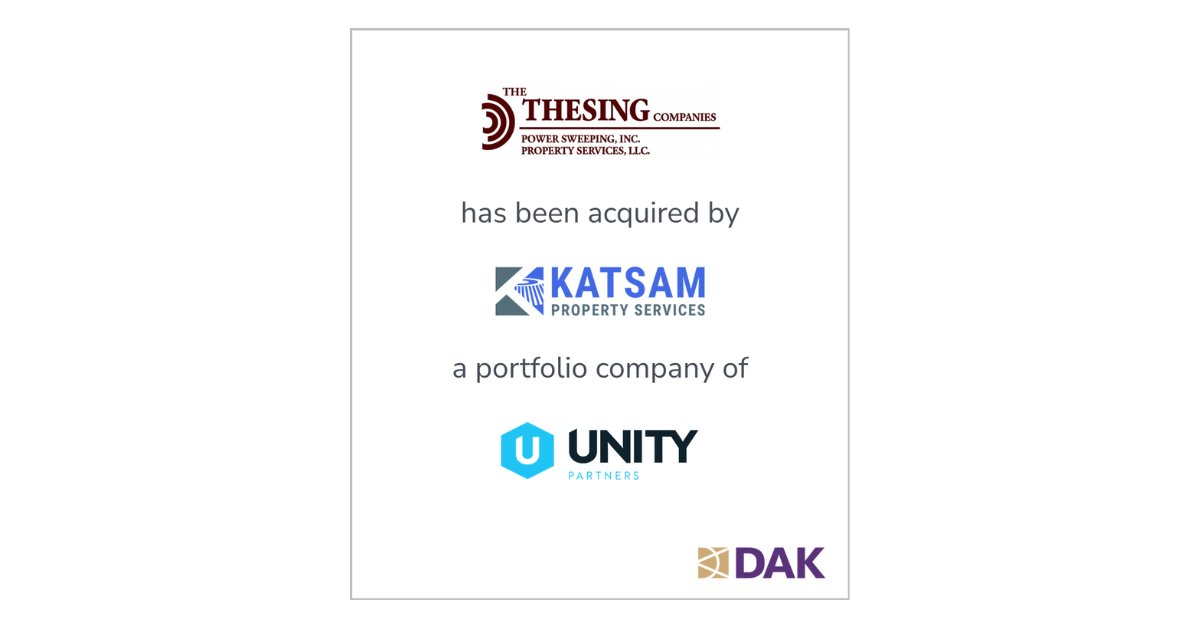Editor’s Note: As mergers and acquisitions continue at a steady pace in the commercial AV industry, Commercial Integrator‘s editor-in-chief, Dan Ferrisi, interviews Ari Fuchs, managing director at DAK, on some of the trends and what business owners can do to capitalize on them.
Commercial Integrator: What do you see as the overall trend of mergers and acquisitions for commercial AV companies this year?
Ari Fuchs: We expect that the mergers and acquisitions market (M&A) for commercial AV businesses, as well as the broader workplace-technology solutions category, will continue to show strength and activity (despite the macroeconomic pressures we continue to hear about).
There are many factors pointing in this direction: We know the companies that made it through the pandemic, did so with a newfound resilience, strong balance sheets and more experienced leadership. On a micro-level, more of these players have upbeat expectations for their businesses and continue to experience strong billings and backlog. These factors, when combined, make these companies ideal candidates for acquisition from both strategic and private-equity buyers that are looking to achieve inorganic growth or to enter this industry. That’s especially true if we end up in a slower-growth environment.
Those same factors also lend themselves to integrators wanting to grow and use acquisitions to help solve some of the challenges and opportunities they are facing, specifically in the areas of talent acquisition, geographic expansion, and increasing services and solutions offerings.
The vast majority of commercial-integration companies fit into the middle-market category. M&A activity in the middle market tends to be more consistent and does not experience the same highs and lows that we generally see with larger companies on Wall Street. From a financing perspective, the private capital markets are still strong and active. In addition, there continues to be a significant amount of private equity and other institutional capital looking for investment opportunities.
M&A for strategic buyers will be particularly strong in 2023, as companies with operating momentum, low-leverage balance sheets and good visibility into positive revenue trends are in the best position to lean into the M&A market. The M&A market, particularly for middle-market businesses, is thus incredibly resilient and will continue to evolve to support the needs of both buyers and sellers.
Commercial Integrator: What type of buyers are you seeing most interested in commercial AV?
Fuchs: We are seeing meaningful buyer interest from both strategic companies and financial sponsors (private-equity firms, family offices, etc.). Strategic companies in a number of niche areas have become very active recently. This includes players in the traditional IT services and MSP ecosystem. Both have emerged as serious buyers of commercial AV integrators as customer demand for communication and collaboration solutions continues to increase. Many MSPs and traditional providers of IT services claim to be fluent in the language of commercial AV, but few truly possess the competency. As a result, they are turning to acquisitions as a means to build out the skillset to properly serve their customers.
In addition, we are also seeing strategic interest from providers of building automation, low voltage and commercial-furniture solutions providers, as they too seek to develop stickier relationships with their customers, while also capturing a greater share of their customers’ technology spend. Financial sponsors, too, continue to be flush with cash and looking for well-run commercial AV companies that can act as a platform for their investment, or as an add on to enhance and strengthen an ongoing investment.
Commercial Integrator: What are your expectations around valuation in the commercial AV sector?
Fuchs: Despite recent public market headwinds driven by inflation and rising interest rates, transaction markets continue to support premium valuations for strong performing private businesses with attractive growth and profit metrics. We are pleased to see that multiples on strategic deals continue to be strong. As stated earlier, there are plenty of cash-rich buyers active in the mergers and acquisitions marketplace willing to pay for well-run commercial AV companies.
Commercial Integrator: What can business owners do to build value in their business?
Fuchs: Prospective buyers look for very specific factors when developing their view on valuation. It is important that owners prepare in advance in order to optimize efficiencies and have a track record to maximize profitability when they go to market. Here are a few key areas business owners can work on immediately.
- Understand the value proposition of what makes your business unique.
A key driver to determining value is what differentiates your business from another. Buyers are looking for specific factors that will add to or enhance their company. For example: Consultative, white-glove customer sales process, desirable geographic footprint, growing base of recurring managed services revenue, attractive customer base, experienced and energized leadership team. - Address key business risks.
These include risks such as customer concentration, revenue visibility, key employees, financial performance, etc. Let’s take a look at what each means:
Customer Concentration:
While you might value your best/largest customer, that same customer could be a red flag to potential buyers. If a top customer accounts for more than 15 to 20% of your revenue, that could have a material impact on value. A diversified customer base is critical to building long-term business value.
Revenue Visibility:
Although many commercial AV businesses depend heavily on project-oriented revenue that seem to reoccur every year, sophisticated buyers often see that as a risk. The lack of contractual certainty give way to questions around revenue sustainability, which can have a negative impact on value. Building a plan, along with the necessary sales-enablement tools to grow managed services, will drive tremendous value to your commercial AV business. Recurring services can include contractual support, staff augmentation, remote management and monitoring, AVaaS, etc.
Key Employees:
If your business is overly dependent on one or a few key players, would-be buyers may be reluctant to move forward at all unless you’ve taken steps to mitigate that risk. Most buyers do not look to save money by terminating key employees. Rather they focus on retaining a company’s leadership. Whenever possible, lock in key employees by obtaining non-compete or non-solicitation agreements well in advance of a transaction.
Financial Performance:
Showing meaningful financial-performance trends to the market is critical to maximizing value upon a sale. Establishing these trends will take time. For those business owners contemplating a transaction over the next several years, failing to plan early may mean significant value left behind.
Commercial Integrator: What recommendations would you give to owners thinking about selling this year?
Fuchs: Preparation is the number one recommendation I give. There are a number of areas owners can focus on in order to best prepare their company in a way to earn the maximum value for it.
Prepare for Due Diligence
In the past, due diligence required mostly accounting, financial and legal analysis. In today’s world, it has expanded to incorporate a broader scope of disciplines such as cybersecurity, e-commerce and intellectual property review. If your business uses technology, has exposure to international markets or does not utilize disciplined accounting procedures, you may want to consider engaging an independent accounting firm to review your financial performance via a Quality of Earnings (QOE) analysis, which can help you prepare for the scrutiny you will face in a sale process.
The sell-side QOE will ensure that the numbers your business is presenting are correct and that they will stand up to due diligence from the buyer. They may also uncover hidden EBITDA adjustments, one-time expenses, cost savings or efficiencies that you didn’t realize existed. By conducting a QOE upfront, you will be able to address many issues before going to market. This may take more time in the beginning of the process, but you will also be more likely to negotiate a higher purchase price when you have buyers at the table.
Prepare Supportable Financials
Potential buyers must have absolute confidence in the accuracy and veracity of the financial picture you are painting for them. The quality of your financials will play a key role in solidifying the transaction. Your financial statements must be reliable, accurate and available in a timely organized fashion. While it is common to present “recasting” adjustments that may more accurately reflect the operations of the business; make sure these adjustments and projections are supportable and realistic. Finally, the presence of strong financial controls and systematic procedures will instill greater confidence in a prospective buyer that your information is reliable.
Assemble Your A-Team of Advisors
You are an expert on the ins and outs of your business, but chances are you have never sold a business. Since this is likely to be one of the most important financial decisions of your life, it is not time to try to learn on the fly. While a typical sale process can take six to nine months to complete, meeting with advisors early on can help you. By engaging with accountants, lawyers and investment bankers earlier on, they can identify opportunities that will give you time to make specific changes that will increase value. Finally, be sure that your team of advisors possesses the relevant industry experience and that their strategic objectives are aligned with your own.
CLICK FOR MORE INFORMATION
CALL 201.712.9555 TO DISCUSS





